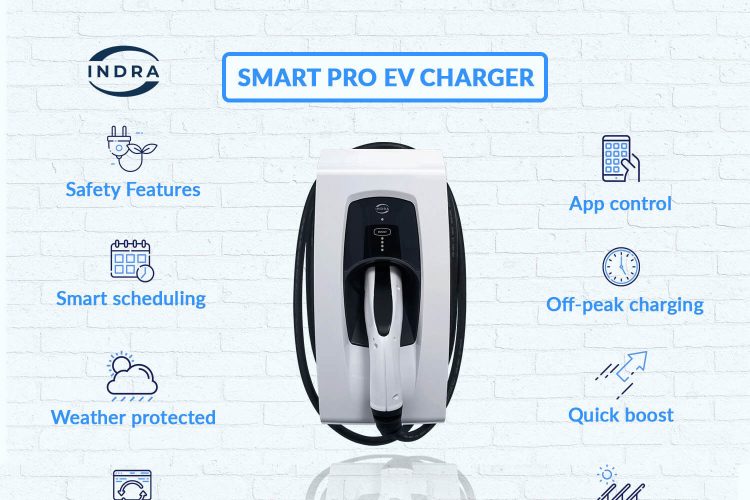
Whether you already own or are thinking of purchasing your BMW i3, you may have several questions about how to get the best out of your new vehicle. This guide aims to provide you with all the information you need to use the i3 efficiently, solve any issues that may occur and, most importantly, enjoy life with your EV.
BMW i3 Specs
0-60 mph time: 7.3 seconds
RRP: £35,120
Battery capacity: 33kWh
Range: 180 miles
Warranty: 3 years
How to Charge your BMWi3
Like many EV manufacturers, BMW produces their own Wallbox charging unit that customers are encouraged to purchase along with their vehicle. However, the BMW i3 is also compatible with any 32amp charging device. BMW i3 standard charging cables should have a type 2 connector on the vehicle end, the other end will be dependent on the type of charger being used. The vehicle will come with an “occasional use” charger as standard. This does not mean that it cannot be used often; it is a slow charge cable and so it is assumed that the user will also rely on fast or rapid charging.
Most home charging units and slow public chargers have universal connections and so the cable should be “Universal to Type 2”. However, for those wishing to use 7kW or 11kW public fast chargers, you will require a compatible 32 amp untethered ‘Type 2 to Type 2’ charging cable. To see our full range of home charging units and charging cables, visit our online store here.
You can also use a portable charging cable which connects to a standard mains socket, known as “granny cables”. These can be useful if visiting places with no other charging facilities. However, they tend to be less efficient than other cables and should be used with caution. It is recommended that these only be used on homes with modern electrical wiring, or after an electrician has inspected the home if you plan on long-term use.
BMW i3 Charging time
The speed of charging can be changed within the car settings. The car will default to ‘Low’ but this can be increased in line with your charger voltage and cable capacity to either ‘Reduced’ or ‘Maximum’. These are defined as:
| Setting | Current | Charge Time |
| Low | 10 to 13 amps | 20 hrs |
| Reduced | 16 to 32 amps | 4:30 hrs |
| Maximum | 32 to 63 amps | 3 hrs |
There is no setting for rapid charging at 125amps as this is controlled by the i3’s computer. Rapid charging can be as quick as 35 minutes. However, you must bear in mind that rapid charging can deplete the battery life over time and may not be advisable on a regular basis.
While the car is charging, the screen will give the expected charge completion time based on the settings applied.
Charging/fuel Costs
On top of your initial expenditure on charging cables and units, there is the ongoing cost of electricity. Let’s assume a standard charge of 14.37p per kWh in the UK and that you already pay for electricity day charges. The i3 has a net battery capacity of 33kWh and a minimum full range of 180 miles (higher range is possible when driving efficiently). Therefore, we can calculate the following:
33kWh x 14.37p per kWh = £4.74 per full charge
£4.74 / 180 miles = 3p per mile
We can then compare the fuel cost of the BMW i3 to the petrol 3 Series:
| Mileage | BMW i3 | BMW 3 Series petrol |
| 30,000 | £900 | £2,272 |
| 20,000 | £600 | £1,515 |
| 10,000 | £300 | £757 |
| 8,000 | £240 | £606 |
| 5,000 | £120 | £379 |
Clearly, while the charging costs of the i3 are not negligible, they are significantly lower than the traditional 3 Series model.
BMW i3 Grants
The BMW i3 is eligible for the OLEV Plug-in Car Grant and the EVHS Grant in England and Wales, or EST Domestic Charge Point Grant in Scotland. For more information on grants, visit here.
BMW i3 Charging Problems
Several customers have reported some charging issues after 6 months of using their i3. Often this will require a replacement charging circuit board. These repairs usually take around one week and, in most cases, are under warranty so charges have been covered by the dealership or BMW. This continues to be an issue in 2019 vehicles, and it is not clear whether BMW have rectified the issue in newer models. For more information on this fault, visit here.
Other users have reported some issues with the charging timers on the vehicles. The user guide allows you to set charging overnight to finish at a standard time, often in line with your usual time of departure. However, there have been instances where customers have been ready to leave their home and the vehicle is not fully charged. This is believed to be a fault caused by the need for batteries to be ‘preconditioned’ and heat up slightly before charging can be dispensed efficiently. Moreover, BMW have not clarified the specifics of the charging mechanism.
If you are interested in the BMW i3 and would like to know more about charging options, please get in touch. A member of our technical team would be happy to answer any questions that you have.





